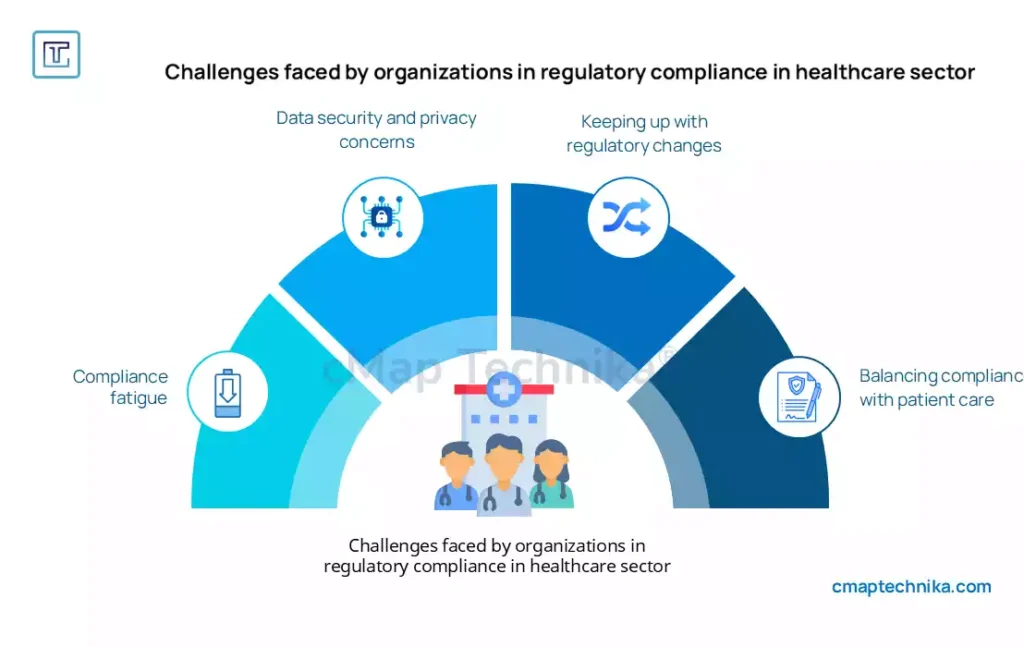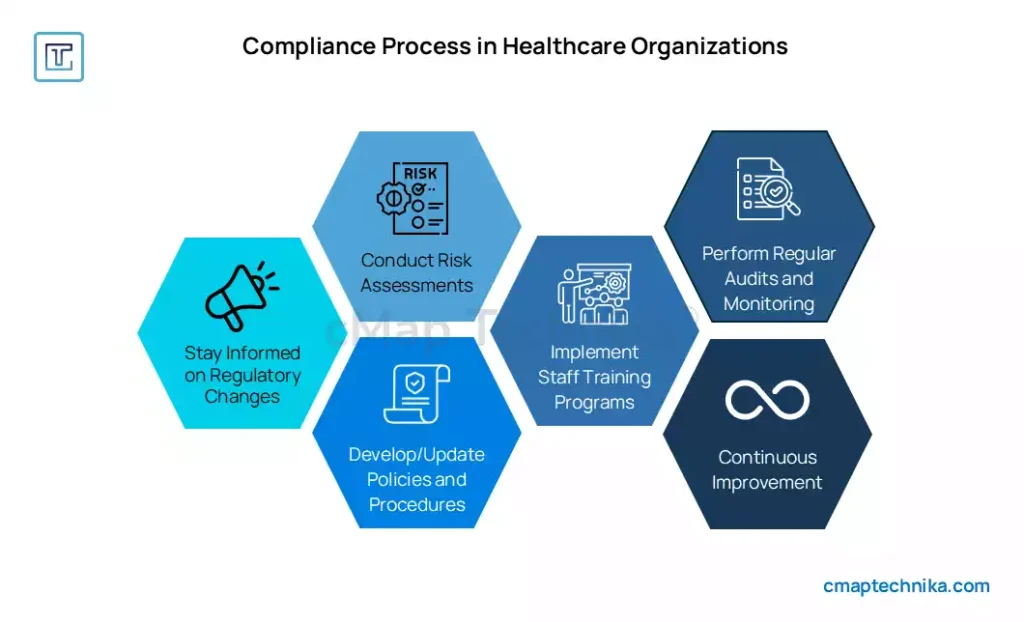Healthcare organizations operate in a highly regulated environment, where compliance with an array of evolving laws, standards, and regulations is crucial to both operational success and patient safety. As regulations grow more complex and dynamic, healthcare providers, payers, and stakeholders face increasing challenges in maintaining compliance while managing risk. To navigate this complex regulatory landscape, many healthcare organizations turn to specialized consulting services that offer expertise in regulatory compliance and risk management.
At Waltcorp, we understand the critical importance of staying compliant with ever-changing healthcare regulations. Our consulting services are designed to guide healthcare organizations through the maze of laws and standards, helping them mitigate risks, ensure regulatory compliance, and stay ahead of regulatory shifts. In this article, we’ll explore how healthcare consulting services play a key role in addressing regulatory challenges and minimizing risk in the healthcare sector.
The Growing Complexity of Healthcare Regulations

Healthcare regulations encompass a wide range of legal and ethical standards designed to ensure patient safety, improve care quality, and protect sensitive information. These regulations often include:
- Patient Privacy and Security: Regulations like the Health Insurance Portability and Accountability Act (HIPAA) govern the protection of patient data and privacy.
- Billing and Reimbursement: Healthcare organizations must adhere to guidelines established by Medicare, Medicaid, and private insurers to ensure proper billing and reimbursement.
- Clinical Standards: Regulations such as the Joint Commission’s standards and local health authority guidelines ensure that care is delivered according to the highest clinical standards.
- Healthcare Fraud and Abuse: Laws such as the Anti-Kickback Statute and the False Claims Act aim to combat fraud and abuse in the healthcare system.
The challenge lies in the ever-evolving nature of these regulations. New laws, updated standards, and changes to existing rules can create significant compliance risks if organizations are not proactive in understanding and adapting to them.
The Role of Healthcare Consulting in Regulatory Compliance
Healthcare consulting services offer a comprehensive solution to address regulatory compliance challenges. Consultants with expertise in healthcare laws and regulations can provide valuable support across several key areas:

1. Regulatory Awareness and Interpretation
One of the primary roles of healthcare consultants is helping organizations stay informed about the latest regulatory changes and interpret how these changes impact operations. Healthcare regulations are often complex, with intricate language and requirements that can be difficult to fully understand. Consultants play a key role in deciphering these regulations, ensuring that organizations are aware of any new or updated laws that affect their operations.
For example, when new billing codes are introduced or changes are made to the conditions for reimbursement under Medicare or Medicaid, healthcare providers must adapt quickly to avoid potential penalties or lost revenue. Consultants help organizations understand the specifics of these changes and implement necessary adjustments to their billing and coding processes.
2. Risk Assessment and Mitigation
Healthcare organizations face numerous risks related to regulatory compliance, including the risk of fines, legal penalties, reputational damage, and operational disruptions. Healthcare consultants conduct thorough risk assessments to identify potential compliance vulnerabilities across the organization. They evaluate areas such as privacy and security practices, clinical standards adherence, financial controls, and employee training to pinpoint gaps in compliance.
Once potential risks are identified, consultants develop and implement tailored risk mitigation strategies. These strategies may include revising policies, improving documentation practices, and strengthening internal controls. By proactively addressing compliance risks, healthcare organizations can avoid costly penalties and safeguard their reputation in a highly competitive industry.
3. Policy and Procedure Development
Developing clear, comprehensive policies and procedures is essential for maintaining regulatory compliance. Consultants assist healthcare organizations in creating or updating internal policies and procedures to align with current regulatory requirements. These policies can cover a wide range of areas, such as patient data security, billing practices, staff training, and clinical operations.
For instance, healthcare organizations must implement robust security policies to comply with HIPAA’s privacy and security rules. Consultants can help design and implement these policies, ensuring that they are not only compliant with regulations but also effective in minimizing risks related to data breaches or unauthorized access to sensitive patient information.
Moreover, consultants help create procedures for auditing and monitoring compliance on an ongoing basis. This ensures that healthcare organizations are consistently meeting regulatory standards and can demonstrate compliance during inspections or audits.
4. Training and Education
Compliance is not a one-time task but an ongoing process that requires continuous education for healthcare staff. Consultants provide specialized training programs to ensure that employees at all levels are aware of the latest regulatory changes and understand how to implement them in their day-to-day roles.
For example, staff may need training on how to properly handle patient data under HIPAA, how to avoid billing errors that could lead to fraud accusations, or how to follow new clinical guidelines. Consultants can design customized training programs that address the specific needs of an organization, ensuring that staff are well-equipped to meet regulatory expectations.
Training is also crucial for fostering a culture of compliance. Healthcare consultants work with organizations to instill a mindset of compliance at every level, from administrative staff to clinical professionals. This approach helps mitigate risks associated with non-compliance, such as legal actions, fines, or damaged patient trust.
5. Audit and Monitoring Services
Regular audits and ongoing monitoring are essential components of maintaining regulatory compliance. Consultants provide audit services to assess whether healthcare organizations are adhering to the latest regulations and internal policies. These audits identify areas of non-compliance and provide recommendations for improvement.
Consultants also help establish continuous monitoring mechanisms to track compliance in real-time. By using advanced technology and data analytics, they can detect potential issues early and take corrective action before they escalate into more significant problems. Regular monitoring ensures that healthcare organizations remain compliant with evolving regulations, reducing the likelihood of surprises during regulatory inspections or audits.
6. Compliance with Evolving Healthcare Laws
The healthcare industry is subject to frequent regulatory changes driven by new legislation, evolving industry standards, and changing political landscapes. For example, recent healthcare reform initiatives, such as the Affordable Care Act (ACA), introduced a host of new regulations that healthcare organizations had to quickly adopt.
Consultants are experts in tracking these regulatory shifts and ensuring that organizations are prepared to comply with any new requirements. This may involve adjusting billing systems, updating patient care protocols, or revising contract terms with payers. Consultants provide valuable guidance in interpreting and implementing these regulatory changes, ensuring that healthcare organizations stay ahead of the curve.
The Importance of Staying Ahead in Compliance
In the healthcare sector, non-compliance is not just a legal issue—it’s a risk to patient care, organizational reputation, and financial stability. Failing to adhere to regulatory standards can lead to legal penalties, loss of accreditation, reduced reimbursement, and costly lawsuits. Worse, it can damage patient trust, which is fundamental to any healthcare organization’s success.

Healthcare consulting services provide organizations with the expertise and support necessary to navigate these complex and ever-changing regulatory landscapes. By staying proactive about compliance, organizations can not only avoid risk but also improve operational efficiency, enhance patient care, and build stronger relationships with stakeholders.
Conclusion
Healthcare organizations face significant regulatory challenges, but with the right consulting services, they can stay ahead of evolving requirements and mitigate risks. Consultants offer valuable expertise in regulatory awareness, risk assessment, policy development, training, and ongoing monitoring, helping healthcare providers maintain compliance and enhance operational effectiveness. In a sector where regulatory compliance is critical to success, partnering with a consulting firm that specializes in healthcare compliance and risk management is a smart investment for organizations looking to navigate the complexities of the healthcare landscape.
At Waltcorp, we provide healthcare organizations with the support they need to navigate regulatory challenges, maintain compliance, and manage risk effectively. Our experts work closely with clients to develop customized strategies that ensure compliance with current regulations and prepare for future changes. With our guidance, healthcare organizations can focus on delivering high-quality care while confidently managing the regulatory demands of the healthcare industry.






